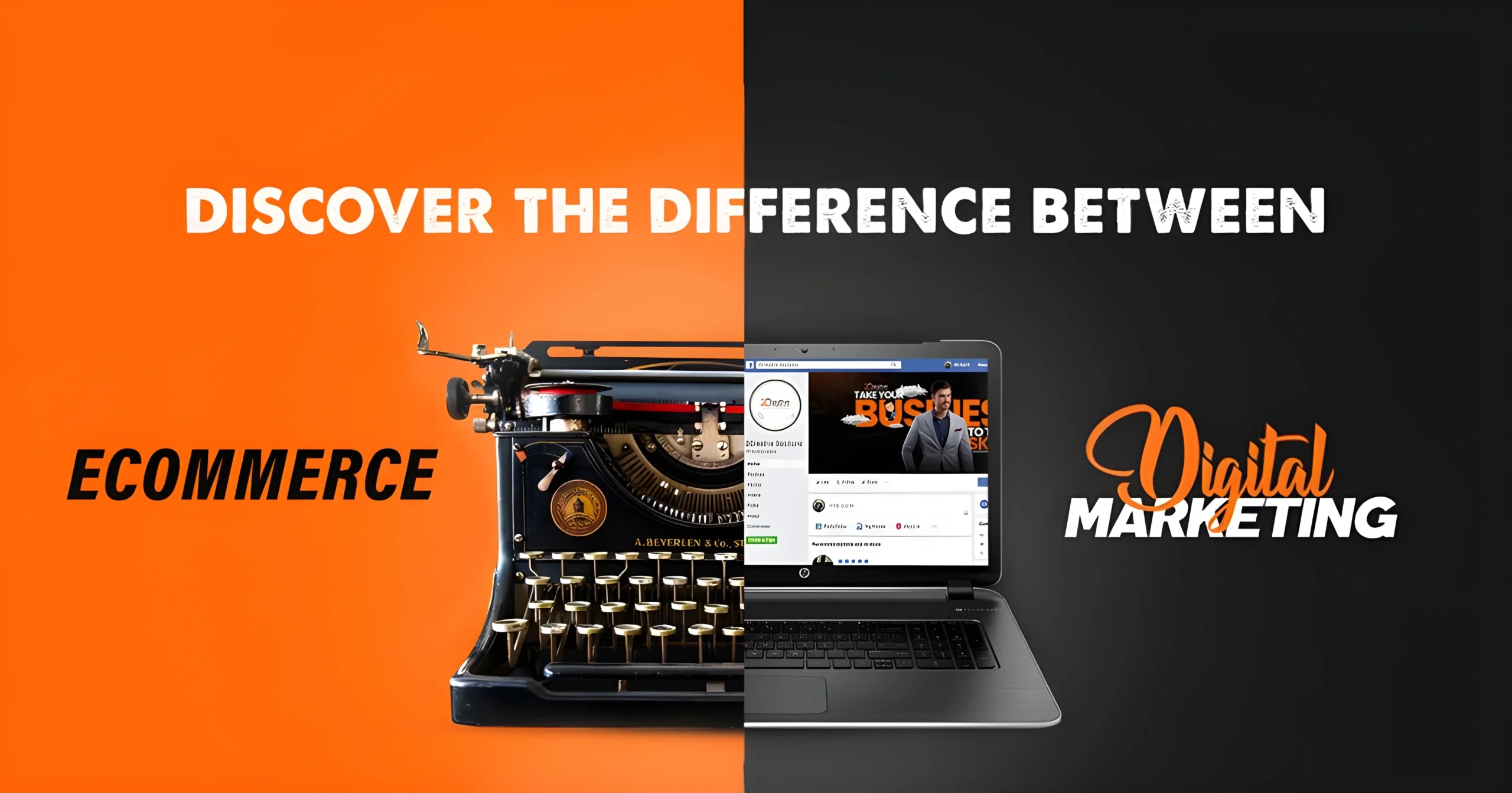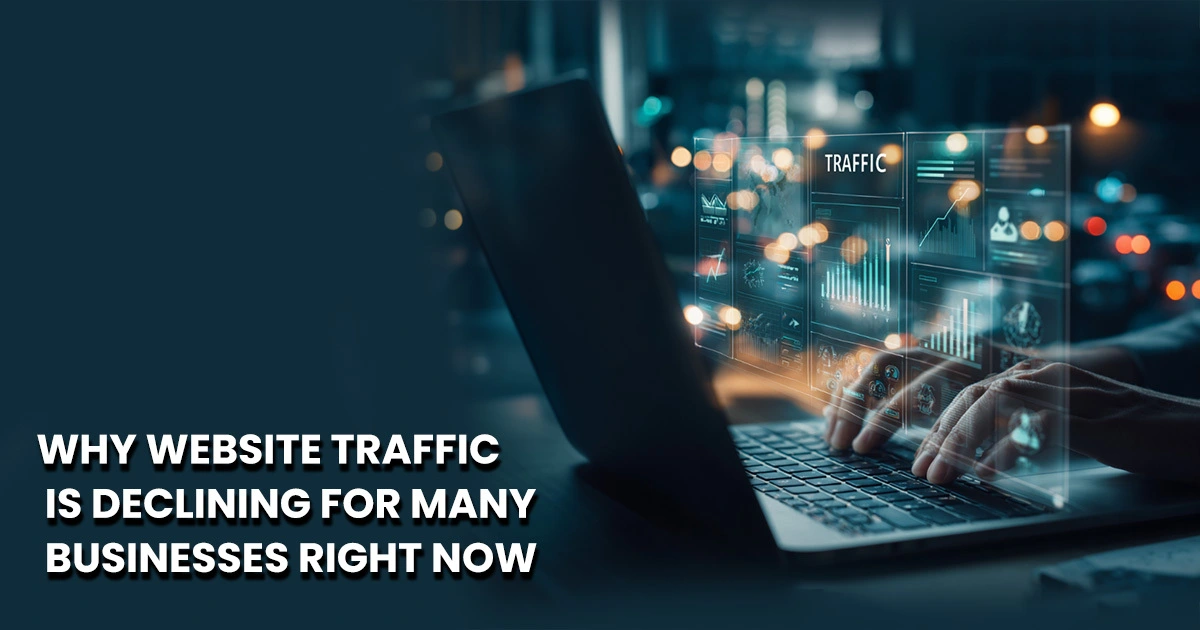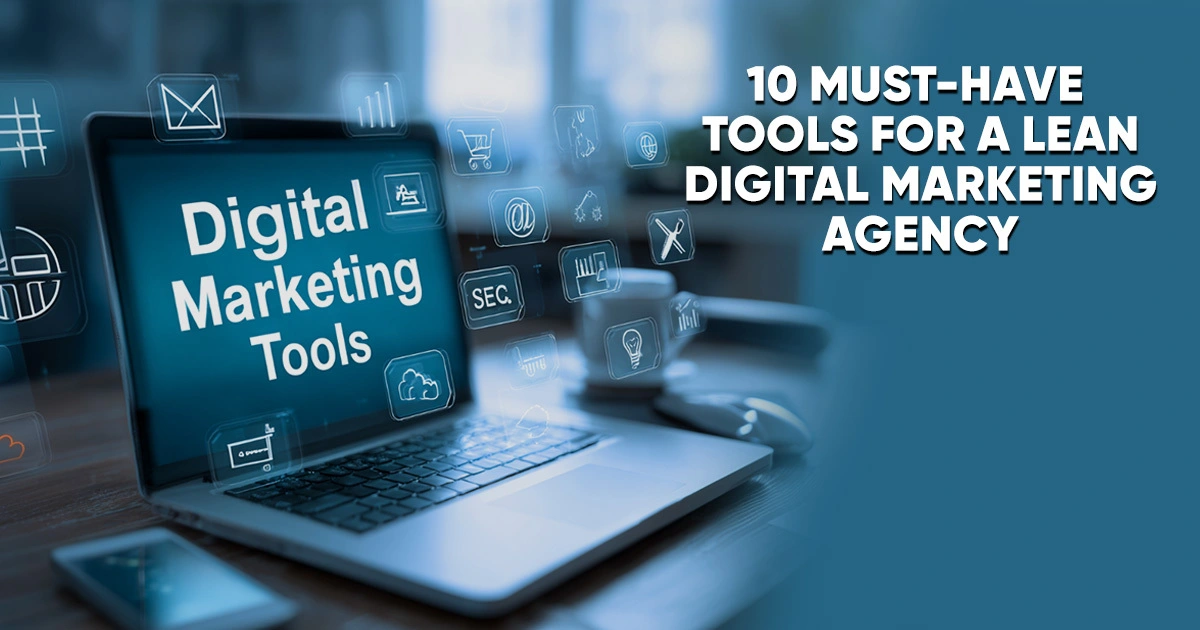Today’s interconnected world often leads to confusion when the terms “e-commerce” and “digital marketing” are used interchangeably, leading to unnecessary confusion.
Although related, both are separate disciplines with distinct primary goals; understanding this difference between e-commerce and digital marketing is key for any business hoping to succeed online – particularly those operating within rapidly digitizing markets such as Pakistan.
This blog post will look at all the different aspects of digital marketing and e-commerce in great detail.
What Is E-Commerce (Electronic Commerce)
E-commerce is about selling things over the internet.
Everything happens online with no physical contact, from viewing the product to buying it and getting it delivered. Ever since COVID, this has really taken off.
Key aspects of e-commerce include
- Online Stores/Platforms
Websites or apps where products can be displayed and transactions conducted can be done like Aliabab, Amazon, or the like.
- Product Catalogs
Digital displays that present product listings including descriptions, images, prices, and availability information.
- Shopping Carts
Electronic containers where customers store items prior to making payments (e.g., credit card processing or mobile wallets).
- Payment Gateways
The payments are also online. People use Paypal, Stripe or whatever works for them. An e commerce store is only as good as its payment system. It has to be fast and reliable.
- Order Management and Fulfillment
In an era of supply chain crunches. This is perhaps one of the most critical parts of the e-commerce business. Companies like Shien and others are struggling because of the ever-changing tariff and trade scene.
- Customer Service
Services offered for online purchases, such as inquiries, returns, and complaint management.
E-commerce’s primary purpose is to facilitate sales and transactions online. It involves setting up infrastructure so customers can buy.
What is Digital Marketing?
Digital Marketing Digital marketing encompasses an expansive definition, comprising any effort that uses an electronic device or the internet to promote products, services or brands. Digital marketing efforts get people to your store be it online or brick and mortar.
Digital marketing is essential for any business that aims to sell in 2025. Emeralds Media is just one of many digital marketing companies in Islamabad that have helped put businesses on the map. So now let us see exactly what is included.
Search Engine Marketing (SEM)/ Pay-Per-Click (PPC)
Paid advertisements are placed at the top of search engine results pages in order to increase their exposure and visibility.
Social Media Marketing (SMM)
Engaging social media platforms such as Facebook, Instagram, TikTok and LinkedIn in order to raise brand awareness, engage customers and drive traffic.
Content Marketing
Content marketing involves producing and disseminating valuable, relevant, and consistent material (blog posts, articles, videos, or infographics) in order to attract and keep a clearly defined target audience engaged.
Display Advertising
Running visual advertisements on websites and apps. Also, it has to look good on the small screen. People are living their lives glued to their phones.
That is where the sales are. If you are a business which wants to get sales. Then target customers on their phones.
We can say E-commerce refers to transactions conducted online where products can be bought or sold online.
Digital marketing is what gets people there. You really cannot have a great e-commerce business without the right digital marketing.
Your store relies on customers coming through its door, but marketing also contributes.
Explore:
Scope of Digital Marketing in 2025
Everything You Need to Know About Ad Agencies in Pakistan
Conclusion
While the terms may seem interchangeable, the distinction between e-commerce and digital marketing cannot be underestimated.
E-commerce provides customers with an online marketplace to purchase goods; digital marketing provides the strategic force that draws customers towards that platform while stimulating interest among potential customers and building long-term relationships with them.
Businesses operating both locally and globally recognize that taking an integrated approach that incorporates an established e-commerce presence with an effective digital marketing plan is paramount to their success in today’s digital economy.
The major thing about the difference between e marketing and digital marketing that people often confuse is that email marketing is a part of digital marketing. However, not all digital marketing is email marketing.
Instead of opting for either strategy over another, businesses should look at ways they complement each other to form a powerful sales-generating ecosystem in cyberspace.
| Feature | Ecommerce | Digital Marketing |
| Primary goal | Facilitate online sales and transactions. | Drive awareness, generate leads, and attract customers to a brand/business. |
| Focus | Buying and selling on the internet | The promotion of products, services, or brands using digital channels. |
| What is it | A digital storefront or platform where transactions occur. | A set of strategies and tactics to reach and engage a target audience online. |
| How it works | Provides the infrastructure for customers to browse products, add to cart, pay, and receive their orders. | Uses various online channels to draw attention, build interest, and direct potential customers towards a desired action |
| Relationship | The Destination | The road |
| Analogy | A shop | Advertising that shop |
| Example | Setting up an online store on Shopify or Daraz, listing products, processing payments. | Running Google Ads campaigns to get people to your Shopify store, managing your Facebook page, or sending email newsletters about new products. |
Frequently Asked Questions
The primary difference between e-commerce and digital marketing lies in their respective functions. E-commerce refers to buying and selling goods or services online via your store.
While digital marketing refers to driving traffic and engagement to attract potential customers towards your e-commerce platform or other goals. Think of e-commerce as your online store while digital marketing acts like an advertising or outreach effort that brings customers in.
While an e-commerce platform could potentially exist without digital marketing (i.e., setting up an online store), its chances of long-term survival or success is greatly diminished without digital promotion, and digital marketing is essential to driving traffic, raising brand awareness, attracting potential customers and eventually driving sales through your platform.
Nope! Digital marketing is a wide discipline used by various types of businesses beyond e-commerce alone.
Service businesses, B2B firms, non-profits and even physical stores rely on it for creating brand awareness, generating leads, engaging their target audiences and driving foot traffic or inquiries. It has applications well beyond online sales!
Both should be prioritized simultaneously. A perfectly optimized e-commerce store without marketing will attract no visitors at all, while brilliant digital marketing campaigns driving visitors to an insecure or poorly designed e-commerce store with high bounce rates may result in low conversions and high bounce rates. An integrated strategy should aim at driving digital traffic towards a user-friendly and secure platform, utilizing optimized digital marketing tactics.




